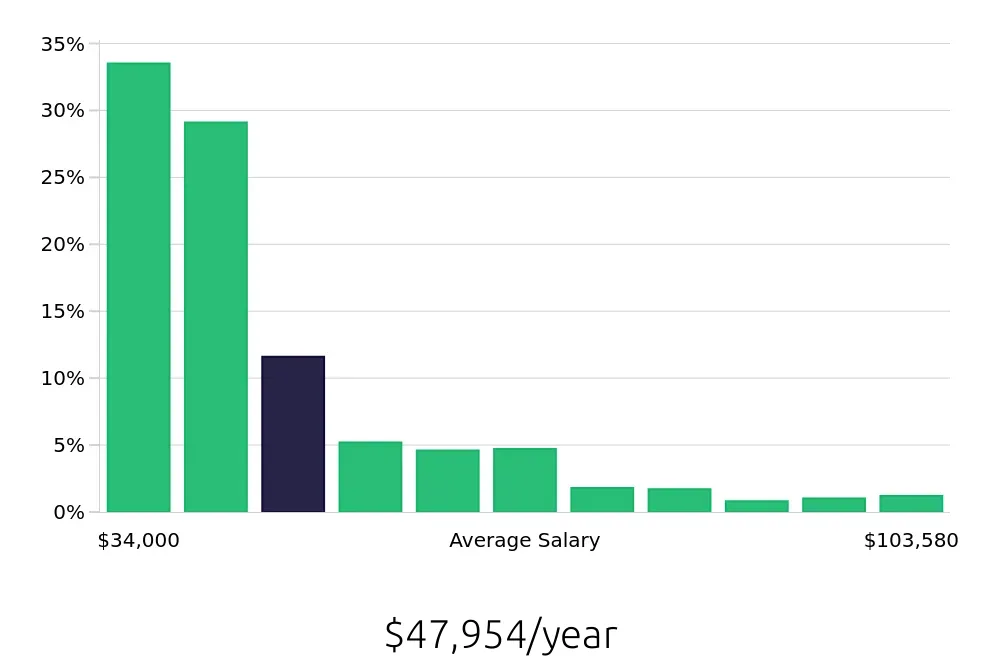What does a Laboratory Analyst do?
A Laboratory Analyst plays a crucial role in the scientific community. They conduct experiments and tests in a lab setting to analyze substances and materials. They use various tools and equipment to perform these analyses. Their work ensures that products meet safety and quality standards. Laboratory Analysts also document their findings and report results to other scientists and researchers.
In this role, a Laboratory Analyst follows strict protocols and procedures. They must maintain accurate records and ensure the accuracy of their work. This position requires attention to detail and a strong understanding of scientific methods. Laboratory Analysts often work with chemicals, biological samples, and other materials. They need to follow safety guidelines to protect themselves and others in the lab. Their work contributes to advancements in science and technology.
How to become a Laboratory Analyst?
Becoming a Laboratory Analyst can open doors to many exciting opportunities. This role involves testing and analyzing substances to ensure they meet specific standards. Follow these steps to start your career as a Laboratory Analyst.
First, earn a relevant degree. Most employers look for candidates with at least a bachelor's degree in chemistry, biology, or a related field. This education provides the foundation needed for laboratory work. Next, gain hands-on experience through internships or entry-level positions. Working in a lab helps build practical skills and a better understanding of laboratory procedures. Additionally, obtaining certifications can make a candidate more attractive to potential employers. Certifications in laboratory techniques or specific testing methods can enhance job prospects. Networking is also important. Attending industry conferences and joining professional organizations can lead to job leads and valuable connections. Finally, keep skills up-to-date by attending workshops and training sessions. Staying current with new technologies and methods is essential in this fast-evolving field.
Follow these steps to launch a successful career as a Laboratory Analyst:
- Earn a relevant degree.
- Gain hands-on experience.
- Obtain relevant certifications.
- Network with industry professionals.
- Stay updated with new skills and technologies.
How long does it take to become a Laboratory Analyst?
Pursuing a career as a Laboratory Analyst requires specific education and training. Typically, it takes about two to four years to complete the necessary education. An associate’s degree is the most common path, often found at community colleges or vocational schools. These programs combine classroom learning with lab work.
After earning a degree, some Laboratory Analysts may choose to gain more experience through internships or entry-level positions. This hands-on experience can take around one to two years. Certifications can further enhance skills and job prospects. Many analysts pursue certifications from professional organizations like the American Society for Clinical Pathology (ASCP). This additional step ensures they meet industry standards and improves their chances of finding a job.
Laboratory Analyst Job Description Sample
The Laboratory Analyst is responsible for performing scientific tests, analyses, and evaluations in a research or industrial laboratory setting. They work with various equipment and techniques to gather and interpret data accurately.
Responsibilities:
- Conduct experiments, tests, and analyses according to standard procedures.
- Maintain and calibrate laboratory equipment to ensure accuracy and reliability.
- Record, analyze, and interpret data, and prepare detailed reports.
- Ensure compliance with safety and quality standards.
- Collaborate with other lab personnel and scientists to support ongoing research and development projects.
Qualifications
- Bachelor’s degree in Chemistry, Biology, or a related scientific field.
- Proven experience as a Laboratory Technician or similar role.
- Strong understanding of laboratory techniques and equipment.
- Ability to work accurately and precisely in a laboratory setting.
- Proficiency in using laboratory software and data analysis tools.
Is becoming a Laboratory Analyst a good career path?
A Laboratory Analyst examines and reports on the quality of various materials. They work in different fields such as food safety, pharmaceuticals, and environmental science. The role involves using scientific equipment to analyze samples. It requires attention to detail and the ability to follow strict protocols.
Choosing this career path has its benefits and challenges. Here are some pros and cons to consider.
- Pros:
- Contributes to public safety by ensuring products meet standards.
- Offers opportunities for professional growth and specialization.
- Provides a stable job with good demand in many industries.
- Cons:
- Often requires long hours, sometimes including evenings and weekends.
- May involve handling hazardous materials, which requires proper training and safety precautions.
- Job can be repetitive and require meticulous attention to detail.
What is the job outlook for a Laboratory Analyst?
Job seekers looking to enter the field of laboratory analysis will find a promising outlook. According to the Bureau of Labor Statistics (BLS), there are typically about 7,100 job openings each year. This steady number of positions suggests a stable demand for professionals in this role. The BLS also projects a 3.2% growth in job opportunities for laboratory analysts from 2022 to 2032. This growth indicates a positive trend for those considering a career in this field.
Financial prospects for laboratory analysts are also encouraging. The BLS reports an average national annual salary of $60,920. This compensation reflects the value placed on the skills and expertise of these professionals. Additionally, the average national hourly wage stands at $29.29, offering a competitive rate for their specialized work. These figures highlight the potential for a rewarding career in laboratory analysis, both in terms of job security and financial compensation.
Laboratory analysts play a crucial role in various industries, including healthcare, pharmaceuticals, and environmental science. Their work involves testing and analyzing samples to provide critical data for research, quality control, and regulatory compliance. This diverse application of their skills can lead to varied career paths and opportunities for specialization. Job seekers with a keen interest in scientific inquiry and analysis will find the role of a laboratory analyst both challenging and rewarding.
Currently 71 Laboratory Analyst job openings, nationwide.
Continue to Salaries for Laboratory Analyst


